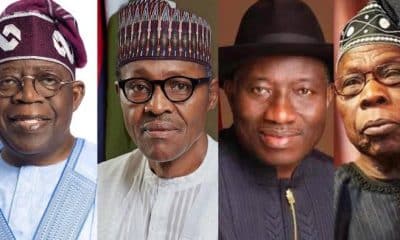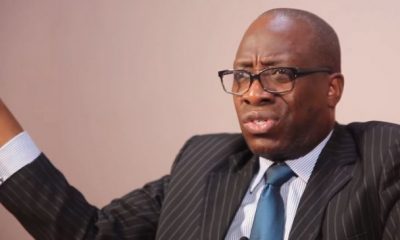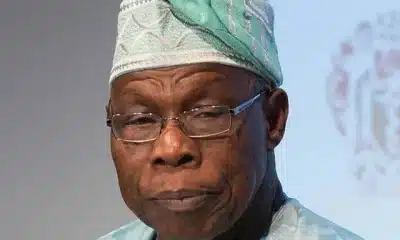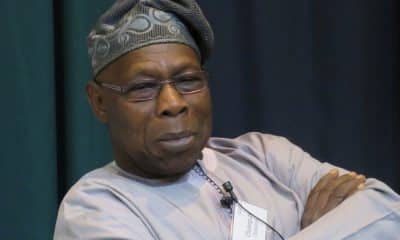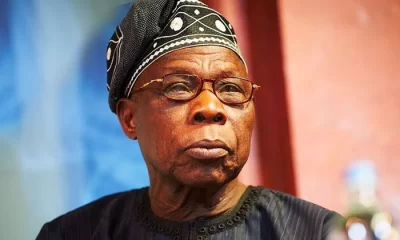Gist
Gender Rights Activist Hits Oil Producing State Governors For Not Tackling Menace Of Out-of-School Children

Governments of the six oil-bearing states of Akwa Ibom, Bayelsa, Cross River, Delta, Edo, and Rivers, have come under severe criticism for allegedly failing to tackle the menace of out-of-school children in the geopolitical zone.
Gender rights activist, Dorathy Ene Eyo, on Saturday, told Naija News that many children in the oil and gas region are currently growing up the hard way.
According to her, ‘’in Akwa Ibom, Bayelsa, Delta, Rivers and other states in the larger Niger Delta area, there are tens of thousands of children living in squalor and poverty. They are robbed of childish innocence, denied the basic necessities of life and left to fend for themselves because their parents are poor and cannot afford to cater for them.’’
She said in the coastal areas, many children have stopped going to school because either their uniforms are torn or their parents cannot afford the levy being paid ‘’in spite of the fact that education is supposed to be free for them.
‘’In some other cases, teachers asked pupils to stay back at home until they get new uniforms. While waiting to get new ones, they devote a major part of their day to fishing or selling at the market in the evenings.
‘’Sadly, parents of the affected children tend to accept their fate. They seem unperturbed that their children are not in school and will never be able to compete with their counterparts in the city. Some of the mothers of these children in the rural areas have told us that they would have loved to see their wards and other children in school but cannot afford to pay the fees.
‘’They claim that It is not their fault that their children do not go to school because they don’t have money to pay the fees.’’
Ms. Eyo says this is happening because measures adopted by the authorities to tackle poverty ‘’do not seem to be very effective in the rural areas. We also feel that governors of the oil states lack the will to make education very functional and effective at the primary school level.
‘’Primary school buildings in rural areas, and even in some in the urban areas are nothing to write home about. What is manifesting today at the tertiary level which ASUU is fighting for is as a result of the decay at the grassroots.
‘’We are of the view that communities should seriously interrogate those seeking their support for elective offices in terms of their plans for education, health, and water supply. 2023 should not be business as usual if our children are to be rescued from turning into social deviants.’’
Former President Olusegun Obasanjo, speaking at the opening of GOTNI leadership centre in Abuja on Thursday expressed concern about the menace of out-of-school children in Nigeria.
Head of United Nations Children Fund (UNICEF) office in Kano, Rahama Farah, on Wednesday said more than 18.5 million children in the country do not have access to quality education.
While speaking on the issue of out-of-school children, Obasanjo said Nigeria will not make significant economic progress until children get access to education.
“When people come to me and say you are doing well, I say ‘no, that is not what I want because I am in a place to do well’’, he said.
According to the former president, “don’t come and tell me that I am doing well. I want you to tell me what I need to do and to do better. That is what I want to hear and not for you to come and tell me I am doing well. The truth is that there is nobody that is born without some amount of innate leadership capacity and it is development that is needed. By the time we come to the GOTNI leadership centre, a bit of it is learnt.
“We should not forget that a lot starts from home, a lot in the school, a lot in the church and the mosque, a lot within the community itself. If we fail in all those areas, you won’t even get them to come here.
“This is one aspect of our life. The other aspect is what we do. I am worried because no matter what we do here, as long as we have the type of situation we have now of 15 million children that should be in school that are not in school, if all of us in school are graduates of GOTNI leadership centre, there will still be that gap of those who should be in school that are not educated.”
Obasanjo also said Nigeria needs quality leadership that can make the right policies for the country, adding, “when you talk about the problem of an African country and particularly of Nigeria, they will say it is leadership — leadership deficit and leadership deficiency — and both can be taken care of in this GOTNI leadership centre.
“Leadership can be taught. Leadership can be acquired just like you can teach anything else. And anything that can be taught, can be learnt. So, if leadership can be taught, it can be learnt. So, people must be ready to teach and learn leadership.”
The institute’s proprietor, Linus Okorie, in his remarks said the centre’s goal is to develop quality leaders and promote competency at all levels.
“The investment that we are making today, some of it might not be speaking right now in the political space, but in the organisations, we are already seeing stories of transformation and change going on,” he said.
“All I want is a critical mass of human beings investing in this journey where we can grow leadership from high school up to political level.
“Now that we are in the political period, anybody who wants to seek political office at whatever level, must come and sit down and understand what leadership is about so that when they get into leadership positions, they will do well because they have been groomed.
“They understand leadership competencies. They are visionary, men and women of honour and they can make things happen. For me, it’s in my agenda to transform leaders and create values. We must invest in them.”

